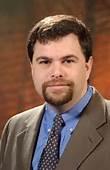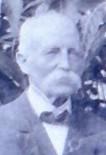
1804 - 1889 Person Name: Benjamin Hall Kennedy Author of "Psalm 57" in Christadelphian Hymn Book Kennedy, Benjamin Hall, D.D., son of the Rev. Raun Kennedy, sometime Incumbent of St. Paul's, Birmingham, and editor of A Church of England Psalm-Book, &c, 1821 (12th ed. 1848), was born at Summer Hill, near Birmingham, Nov. 6, 1804, and educated at King Edward's School, Birmingham; Shrewsbury School; and St. John's College, Cambridge. He graduated B.A. in 1827 (First Class Classical Tripos and First Chancellor's Medallist). He was Fellow of his College 1828-36; Head Master of Shrewsbury School, 1836-66; and Regius Professor of Greek in the University of Cambridge and Canon of Ely , 1867. Dr. Kennedy took Holy Orders in 1829, and was for some time Prebendaiy in Lichfield Cathedral and Rector of West Felton, Salop. He was elected Hon. Fellow of St. John's College, Cambridge, in 1880. Besides his Public School Latin Grammar, Palaestra Latina, Palaestra Stili Latini, &c, his editions of some of the Classics, and University Sermons, Dr. Kennedy published the following:—
(1) The Psalter, or the Psalms of David, in English Verse. By a Member of the University of Cambridge, 1860; (2) Hymnologia Christiana, or Psalms & Hymns Selected and Arranged in the Order of the Christian Seasons (quoted in this Dictionary as Kennedy), 1863.
i. From these two works many psalms and hymns have passed into other collections. The following versions of the Psalms first appeared in The Psalter, 1860, and again in the Hymnologia Christiana 1863. In many instances they have undergone considerable alteration in the latter work, and those of great length are broken into parts:—
1. All ye people, come and clap, &c. Ps. xlvii.
2. Arise, 0 Lord, with healing rod. Ps. x.
3. As pants the hind for cooling streams. Ps. xlii.
4. As Thy mercy lasts for ever. Ps. cix.
5. Be merciful to me, 0 God. Ps. lvii.
6. Be Thou my Judge, and I will strive. Ps. xvii.
7. Bless ye the Lord, His solemn praise record. Ps. cxxxiv.
8. Bow down Thine ear, and hear my cry. Ps. lxxxvi.
9. Come, ye children, list to me. Ps. xxxiv.
10. Ever, O my God and King. Ps. cxlv.
11. Ever will I bless the Lord. Ps. xxxiv.
12. Every king shall bow before Him. Ps. lxxii.
13. Full oft my chafing thoughts, &c. Ps. lxxiii.
14. God, avert the deadly blow. Ps. lix.
15. God, in Judah's homes is known. Ps. lxxvi.
16. God of my righteousness. Ps. iv.
17. Hear Thou my prayer, O Lord. Ps. cxliii.
18. Help us, O Lord, the good decay. Ps. xii.
19. How blest are they who flee, &c. Ps. cxix.
20. How blest the man, who fears to stray. Ps. i.
21. How blest the man whose errors, &c. Ps. xxxii.
22. How good it is to praise the Lord. Ps. xcii.
23. How long art silent, Lord? how long. Ps. xxxv.
24. How long forgotten, Lord, by Thee. Ps. xiii.
25. How long wilt Thou conceal Thy face. Ps. lxxxix.
26. I lift mine eyes unto the hills. Ps. cxxi.
27. I love the Lord, for He is nigh. Ps. cxvi.
28. I muse upon Thine ancient praise. Ps. lxxvii.
29. I praise Thee, Lord, who o'er my foes. Ps. xxx.
30. I trod the path of life, my strength. Ps. cii.
31. In trouble to the Lord I prayed. Ps. cxx.
32. Jehovah reigns, arrayed in light. Ps. xciii.
33. Judge me, O God; maintain my cause. Ps. xliii.
34. Lord, hear my prayer, and let my cry. Ps. cii.
35. Lord, I am not lofty-minded. Ps. cxxxi.
36. Lord, I lift my soul to Thee. Ps. xxv.
37. Lord, my Rock. I cry to Thee. Ps. xxviii.
38. Lord, save me from the foeman's wrath. Ps. cxl.
39. Lord, Thou wilt guard with faithful love. Ps. xxxvii.
40. Lord, Thy love and truth I praise. Ps. ci.
41. My God, my God, to Thee I cry, Ah! why hast Thou, &c. Ps. xxii.
42. My heart is fain, O God, my heart. Ps. cviii.
43. My portion is the living Lord. Ps. cxix.
44. My Saviour is the living Lord. Ps. xi.
45. My Shepherd is the Lord, no care. Ps. xxiii.
46. My trust is in Thy holy Name. Ps. lxxi.
47. My voice to God ascends on high. Ps. lxxvii.
48. Not in envy, not in anger. Ps. xxxvii.
49. Not in Thy fury, Lord, reprove. Ps. xxxviii.
50. O grant us, God of love. Ps. lxvii.
51. O God, be merciful to me. Ps. li.
52. 0 God of hosts, a vine. Ps. lxxx.
53. 0 God, subdue the power of sin. Ps. vii.
54. O Lord, in Thine accepted day. Ps. lxix.
55. 0 Lord our King, how bright Thy fame. Ps. viii.
56. O Lord, the God of my salvation. Ps. lxxxviii.
57. 0 praise ye the Lord, Praise Him in His shrine. Ps. cl.
58. O rejoice, ye righteous, in the Lord. Ps. xxxiii.
59. Oft, as to scatter kings. Ps. lxviii.
60. Out of the depths to Thee I cry. Ps. cxxx.
61. Praise, O my soul, the Lord and all. Ps. ciii.
62. Praise, 0 my soul, the Lord; how great. Ps. civ.
63. Praise the Lord, for good is He. Ps. cxxxvi.
64. Praise the Lord, for it is wise. Ps. cxlvii.
65. Praise the Lord from heaven on high. Ps. cxlviii.
66. Praise the Lord, His people; raise. Ps. cxlvi.
67. Praise ye the Lord, all nations. Ps. cxvii.
68. Praise ye the Lord, for good is He. Ps. cxviii.
69. Praise ye the Lord, for very good. Ps. cvii.
70. Praised be the Lord, my Rock of might. Ps. cxliv.
71. Save me, O God, the dangerous, &c. Ps. lxix.
72. Save me through Thy name, 0 God. Ps. liv.
73. Seek we Jehovah's house, they said. Ps. cxxii.
74. Sing a new song unto the Lord. Ps. xcvi.
75. Sing the Lord, ye sons of heaven. Ps. xxix.
76. Sing unto the Lord with mirth. Ps. c.
77. Take note, O Lord, of all my fears. Ps. lvi.
78. The heavens declare Thy wondrous fame. Ps. lxxxix.
79. The heavens, O God, Thy glory tell. Ps. xxx.
80. The king, 0 Lord, with hymns of praise. Ps. xxi.
81. The life of man is like the grass. Ps. ciii.
82. The Lord in thy distressful day. Ps. xx.
83. The Lord is King; glad earth, and ye. Ps. xcvii.
84. There is no God, so saith the fool. Ps. xiv.
85. Thou searchest all my secret ways. Ps. cxxxix.
86. To Thee I call. O Lord, be swift. Ps. cxli.
87. 'Twas dream-like, when the Lord's decree. Ps. cxxvi.
88. Unless the Lord with us had wrought. Ps. cxxiv.
89. Unto my feet a lantern shines Thy word. Ps. cxix.
90. Unto the Lord I make my moan. Ps. cxlii.
91. We sat and wept by Babel's stream. Ps. cxxxvii.
92. When Israel came from Egypt's strand. Ps. cxiv.
93. When through the dismal waste. Ps. lxviii.
94. Who rules his life by God's behest. Ps. cxxviii.
95. Whoe'er his secret home has made. Ps. xci.
96. With weary care brought low. Ps. lxix.
97. With my whole heart I will praise Thee. Ps. cxxxviii.
98. Within Thy tabernacle, Lord. Ps. xv.
99. Ye Judges of the earth, be still. Ps. lxxxii.
ii. The following also appeared in The Psalter, 1860, and again in Hymnologia Christiana 1863, mostly altered, and based upon the corresponding Psalms by George Sandys (q.v.), published in his Paraphrase upon the Psalms of David, 1636:—
100. Blest he whose timely mercies heed. Ps. xli.
101. Hide not, 0 Lord, Thy cheering face. Ps. xl.
102. I waited for a gentle word. Ps. xl.
103. Israel of God, be Christ your Guide. Ps. cxv.
104. Who in the Lord securely lay. Ps. cxxv.
iii. To the Rev. A. T. Russell's Psalms & Hymns, 1851, Dr. Kennedy was indebted to a limited extent in preparing his Psalter, 1860. In his Preface he says, p. viii.," Mr. Russell's metres, and occasionally his words, have been adopted in the following Psalms: 2, 24, 39, 45, 46, 50, 84, 85, 90, 110, 111, 113." Of these the following, sometimes with alterations of the 1860 text, were given in the
Benjamin H. Kennedy




